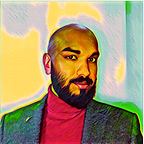Banning Books for Fun and Profit
I think that the first “dystopian” novel I ever read was The Giver. I first started this book on a long car ride but started to get a headache. A couple of years later, it was assigned reading in middle school. I got through the “stirrings,” the color red, nonchalant infanticide, and finally I got to the end.
Does Jonas die?
Is he hallucinating?
It was up to us to decide.
Next year, I read Animal Farm. I did so as a part of my summer reading assignment before 9th grade. I didn’t connect the story to the October Revolution, Stalin, or the Soviet Union. I simply thought it was about hypocrisy, absolute power corrupting absolutely. In 10th grade, we read 1984, again with very little if any historical context provided.
Dystopia is dystopia, right?
I wasn’t in the English class that read Fahrenheit 451, but by then I knew that restricting knowledge, in the form of books or otherwise, was a hallmark of totalitarian regimes. It was a prerequisite to strip people of their curiosity, their humanity. Book bans were how you reduced human beings into a regime’s playthings, more subjects than citizens.
Living in Russia, news stories like this from January 2023 shouldn’t come as a surprise:
Ordinary Russians are unable to access an increasingly broad range of literature as bookshops and libraries pull titles from their shelves amid a wartime crackdown on political dissent and a November law banning LGBT “propaganda.”
In particular, failing to comply with the controversial — and vague — anti-LGBT law puts shops at risk of large fines or, at worst, closure.
The pressure to comply with restrictions comes as bookstores, particularly independent ones, are facing mounting financial difficulties.
“Many of our regular customers left due to mobilization… We’re earning less money, and we have no money to pay fines,” said the anonymous St. Petersburg bookstore owner.
Aside from predictable censorship that accompanies the growth of state power during wartime (called by that name or otherwise), such a policy is a logical outgrowth of legislation protecting snowflakes offended by political protest or speech contrary to their deeply held beliefs. The PATRIOT Act in the US crept into libraries with explicit national security goals — using state power to snoop on behalf of the offended.
Do these people hear themselves?
But what’s the excuse for this in America? In April 2024?
A 2022 law subjects “librarians to fines and possible imprisonment for allowing sexually explicit materials on bookshelves,” a new addition to the family tree that includes decades-old attempts by white supremacists to censor American history.
“It’s putting fear into some people. It’s very scary,” said Diane Rogers, a school librarian who serves as president of the Indiana Library Federation. “If you’re a licensed teacher just being charged with a felony potentially gets rid of your license even if you’re found innocent. That’s a very serious thing.”
That’s not to say that state power isn’t behind this kind of thing in the States. Failed Republican presidential candidate and poop-monger Ron DeSantis has staked his career on such policies.
It takes astroturfed right-wing activists in America to do the same thing imposed from above by an anti-democratic authoritarian in Russia.
For all of the brand envy that Russia under sanctions may have, on this point, it looks like it’s right-wing, Christian nationalist Americans who are the copycats. Still, what should simply be poetic irony isn’t: it’s quite likely that high level Republican politicians are indirectly on the Kremlin’s payroll. Additionally, Russian disinformation efforts are stoking anxieties about immigration among actual voters.
Garbage in, garbage out.
Harassment campaigns and book bans like these are better suited for the pages of novels inside the library, not on the front page of papers about them.
Does this have a place in America?
That depends.
It’s an election year.
It’s up to us to decide.
